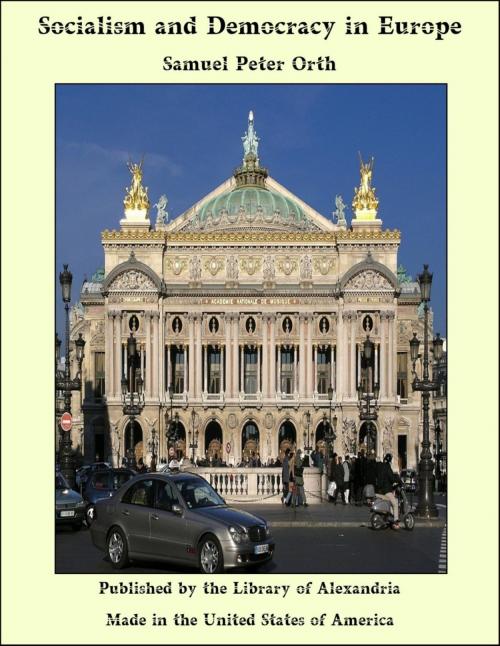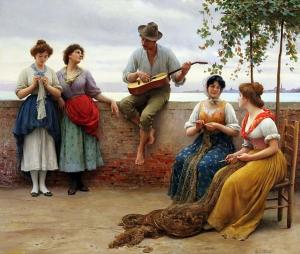Socialism and Democracy in Europe
Nonfiction, Religion & Spirituality, New Age, History, Fiction & Literature| Author: | Samuel Peter Orth | ISBN: | 9781465601490 |
| Publisher: | Library of Alexandria | Publication: | March 8, 2015 |
| Imprint: | Language: | English |
| Author: | Samuel Peter Orth |
| ISBN: | 9781465601490 |
| Publisher: | Library of Alexandria |
| Publication: | March 8, 2015 |
| Imprint: | |
| Language: | English |
The answer to this question will bring us nearer to the core of the social movement than any attempted definition. The French Socialist program begins with the assertion, "Socialism is a question of class." Class distinction is the generator of Socialism. The ordinary social triptych—upper, middle, and lower classes—will not suffice us in our inquiry. We must distinguish between the functions of the classes. The upper class is a remnant of the feudal days, of the manorial times, when land-holding brought with it social distinction and political prerogative. In this sense we have no upper class in America. The middle class is composed of the business and professional element, and the lower class of the wage-earning element. There are two words, as yet quite unfamiliar to American readers, which are met with constantly in European works on Socialism and are heard on every hand in political discussions—proletariat and bourgeois. The proletariat are the wage-earning class, the poor, the underlings. The bourgeois are roughly the middle class. The French divide them into petits bourgeois and grands bourgeois. Werner Sombart divides them into lower middle class, the manual laborers who represent the guild system, and bourgeoisie, the representatives of the capitalistic system. It will thus be seen that these divisions have a historical basis. The upper class reflect the days of feudalism, of governmental prerogative and aristocracy. The middle class are the representatives of the guild and mercantile systems, when hand labor and later business acumen brought power and wealth to the craftsman and adventurer. The lower class are the homologues of the slaves, the serfs, the toilers, whose reward has constantly been measured by the standard of bare existence. Socialism arises consciously out of the efforts of this class to win for itself a share of the powers of the other classes. It is necessary to understand that while this class distinction is historic in origin it is essentially economic in fact. It is not "social"; a middle-class millionaire may be congenial to the social circles of the high-born. It is not political; a workingman may vote with any party he chooses.
The answer to this question will bring us nearer to the core of the social movement than any attempted definition. The French Socialist program begins with the assertion, "Socialism is a question of class." Class distinction is the generator of Socialism. The ordinary social triptych—upper, middle, and lower classes—will not suffice us in our inquiry. We must distinguish between the functions of the classes. The upper class is a remnant of the feudal days, of the manorial times, when land-holding brought with it social distinction and political prerogative. In this sense we have no upper class in America. The middle class is composed of the business and professional element, and the lower class of the wage-earning element. There are two words, as yet quite unfamiliar to American readers, which are met with constantly in European works on Socialism and are heard on every hand in political discussions—proletariat and bourgeois. The proletariat are the wage-earning class, the poor, the underlings. The bourgeois are roughly the middle class. The French divide them into petits bourgeois and grands bourgeois. Werner Sombart divides them into lower middle class, the manual laborers who represent the guild system, and bourgeoisie, the representatives of the capitalistic system. It will thus be seen that these divisions have a historical basis. The upper class reflect the days of feudalism, of governmental prerogative and aristocracy. The middle class are the representatives of the guild and mercantile systems, when hand labor and later business acumen brought power and wealth to the craftsman and adventurer. The lower class are the homologues of the slaves, the serfs, the toilers, whose reward has constantly been measured by the standard of bare existence. Socialism arises consciously out of the efforts of this class to win for itself a share of the powers of the other classes. It is necessary to understand that while this class distinction is historic in origin it is essentially economic in fact. It is not "social"; a middle-class millionaire may be congenial to the social circles of the high-born. It is not political; a workingman may vote with any party he chooses.















